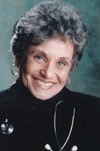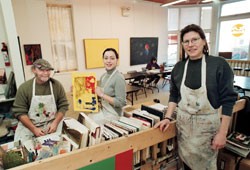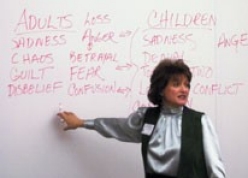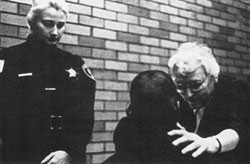Prescription for a healthier America
by Marilyn Gaston, MD '64, U.S. health care advocate
Learn what you need to do to stay well, and motivate yourself to do it. I know that lifestyle changes are not easy, but we have much more control over our health than most people believe. Genetics is only 20 percent, the environment is another 20 percent and quality of care is 15 percent of what makes us healthy or sick. The rest -- 45 percent -- is lifestyle.
Promote "well care" in addition to sick care. Prevention gets less than 1 percent of the $1.3 trillion spent yearly on health care in the U.S., even though it could potentially lower costs, improve quality of care and enhance outcomes. The American health-care community certainly has the capacity to take care of sick people, but we need to work on keeping people well.
Encourage a more holistic approach. We know that the integration of emotional, physical and spiritual approaches to health care leads to better outcomes. We don't understand how it works, but we can document that it does.
Make pharmaceuticals affordable for all Americans. People have to be able to get their medicines. Without them we will not be able to decrease the complications of hypertension -- renal disease, heart disease, stroke -- that lead to bad outcomes.
Offer more accessible health care. Millions of Americans are uninsured, and millions of those with insurance can't get care because of system barriers: language, distance from providers or limited hours. If their only choice is a hospital emergency room, that drives up health costs.
Expect better health outcomes. America is 18th in the world in life expectancy for women, 24th for men and 26th in infant mortality. The Institute of Medicine says 98,000 people die each year in our hospitals, due to errors. There is a lot of waste in our system, a lot of duplication of effort and useless paperwork. How we run the systems, and their quality and safety, is very important to the health of this nation.
Dr. Marilyn Gaston, a former U.S. assistant surgeon general, recently retired from federal service as director of the Bureau of Primary Health Care, Department of Health and Human Services. Co-author of "Prime Time: The Complete Guide to Health and Wellness for the Midlife African American Woman" (Ballantine, 2001), the UC alumna is currently working on a second book and fulfilling speaking engagements.
Link:
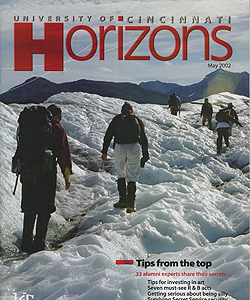
 Past Issues
Past Issues